Zen wants to know how to avoid conflicts, but what if conflicts are sometimes helpful?
Scroll down for an easy-to-read podcast TRANSCRIPT, DISCUSSION QUESTIONS, and how to submit YOUR CHILD’S QUESTION.
You might also like these podcast episodes:
Ep. 18 – Kai, Age 9: Friends call him bossy
Ep. 55 – Blaire, Age 12: Say no without feeling bad
Ep. 35 - Ryan, Age 11: Peers put down his interests
Do you love the Kids Ask Dr. Friendtastic podcast?
Here are three ways you can support it:
Post a review on the Apple Podcasts app or your favorite podcast platform.
Send in your child’s question.
Become a paid subscriber to help keep the podcast free for everyone. (You’ll get free access to an online workshop each month.)
Would YOUR kid enjoy being featured on the podcast?
Adults, please use your smartphone's memo function or an audio app to record your child's question. Hold the phone close to your child's mouth to make sure the recording is clear. Have your child state:
their FIRST NAME (or another first name),
their AGE, and
a BRIEF QUESTION or concern about friendship. (Please do not include any friends' names.)
Submit the audio file at https://DrFriendtastic.com/submit. I’ll answer as many questions as I can. (Obviously, this is not psychotherapy, and it’s not for emergency situations.)
Think About It Questions to discuss with your child
For a quick and easy friendship lesson, play the podcast up to the end of the kid’s question, then ask your child/students what advice they’d give. Play my answer, then use the discussion questions below to deepen your child’s/students’ understanding.
Describe a conflict you had with a friend. What happened? What was your friend’s point of view and what was yours? How did the conflict affect your friendship?
Dr. Friendtastic says that conflict can be a way for friends to learn about each other. What does that mean?
When might it be a good idea to give in and do what your friend wants, even though it isn’t exactly what you want? When is it NOT a good idea to do this?
Why is it important to try to understand what a friend is thinking or feeling? (Hint: What could happen if we just insist on what we want?)
What are some things you can do or not do to make conflicts with a friend less painful?
Transcript
Hi there! I’m Dr. Eileen Kennedy-Moore, also known as Dr. Friendtastic. I’m an author and clinical psychologist based in Princeton, NJ.
Here’s today’s question:
Hello, Doctor Friendtastic. My name is Zen, and I'm 6-years old. My question is, how do you not let conflicts happen?
Hi, Zen! Thank you so much for sending in this question! Conflict with a friend can be upsetting! You might feel angry, frustrated, or hurt. You might also feel worried about whether the conflict will end your friendship!
The problem is, there’s only one way to have conflicts never happen: You and your friend would have to think and feel exactly the same way every single second! But wait, then you wouldn’t be friends! You’d be the same person! So, that’s not going to work!
Conflict can be difficult, but it doesn’t have to be painful. And, it can actually be a way for friends to learn about each other.
We all tend to assume that everyone thinks the same way we do, but of course, that’s not true. When a friend tells us, “I don’t like this!” or “I want to do that instead!” we need to pay attention and try to understand what our friend is thinking or feeling.
For example, if you notice that your friend seems upset, ask questions to understand what’s going on. You could ask, “What’s wrong?” or “What don’t you like about that?” or “What do you want to do?” Asking questions can show caring for a friend.
Try to express your opinion in kind ways. That means no yelling, no name-calling, and no rough stuff. Use phrases like “I think…” or “I feel…” or “I want…” or “I don’t like…” to let your friend know your point of view and then add the word “because…” and explain why that’s what you’re thinking or feeling. That will make it easier for your friend to understand your point of view.
Once you understand each other, how do you move past the conflict? Well, you might want to suggest a compromise. This involves doing partly what you want and partly what your friend wants. So, if you disagree about what game to play, maybe you could play your friend’s game first and your game next, or maybe you could suggest a different game that you’d both enjoy.
But if the topic is something your friend feels strongly about, you might choose to go along with your friend’s wishes. You don’t have to do that all the time, but sometimes just doing what your friend wants, even if it’s not exactly what you want, is a kind thing to do.
If you’ve done something that hurt your friend’s feelings, say you’re sorry. A sincere apology can be a good way to move past a friendship rough spot.
If feelings get very heated, you might need to separate for a little bit to let tempers cool, but then be sure to come back together and be kind.
Forgiveness is an important part of friendship. If your friend did something that upset you, keep in mind that we all make mistakes. You’re not perfect and neither is your friend. Sometimes we need to let go of past hurts and try again.
Conflicts are uncomfortable, but if you pay attention and try to respond with kindness, you and your friend will come through the conflict understanding each other better, and your friendship will be even stronger!
This has been Kids Ask Dr. Friendtastic. If you have a question about making and keeping friends that you’d like me to answer, go to DrFriendtastic.com, and click on the podcast tab to see how to submit your question.
Do you want to learn even more about friendship? Check out my funny and practical books for kids: Growing Friendships: A Kids’ Guide to Making and Keeping Friends, and my new book, Growing Feelings: A Kids’ Guide to Dealing with Emotions About Friends and Other Kids. They’re available through your library or wherever you buy books.
The Dr. Friendtastic for Parents newsletter and the Kids Ask Dr. Friendtastic podcast are for educational purposes only. They may or may not be relevant for your particular situation. I trust you to use your judgment about what’s right for your child and your family.

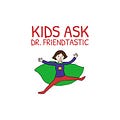




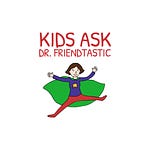
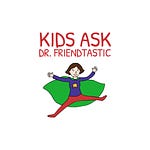
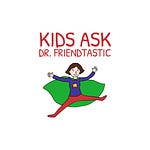
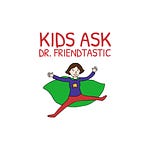
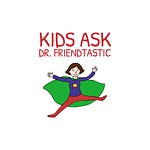
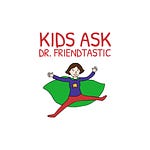
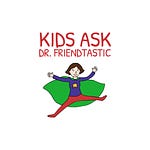
Zen, Age 6: Avoiding Conflict